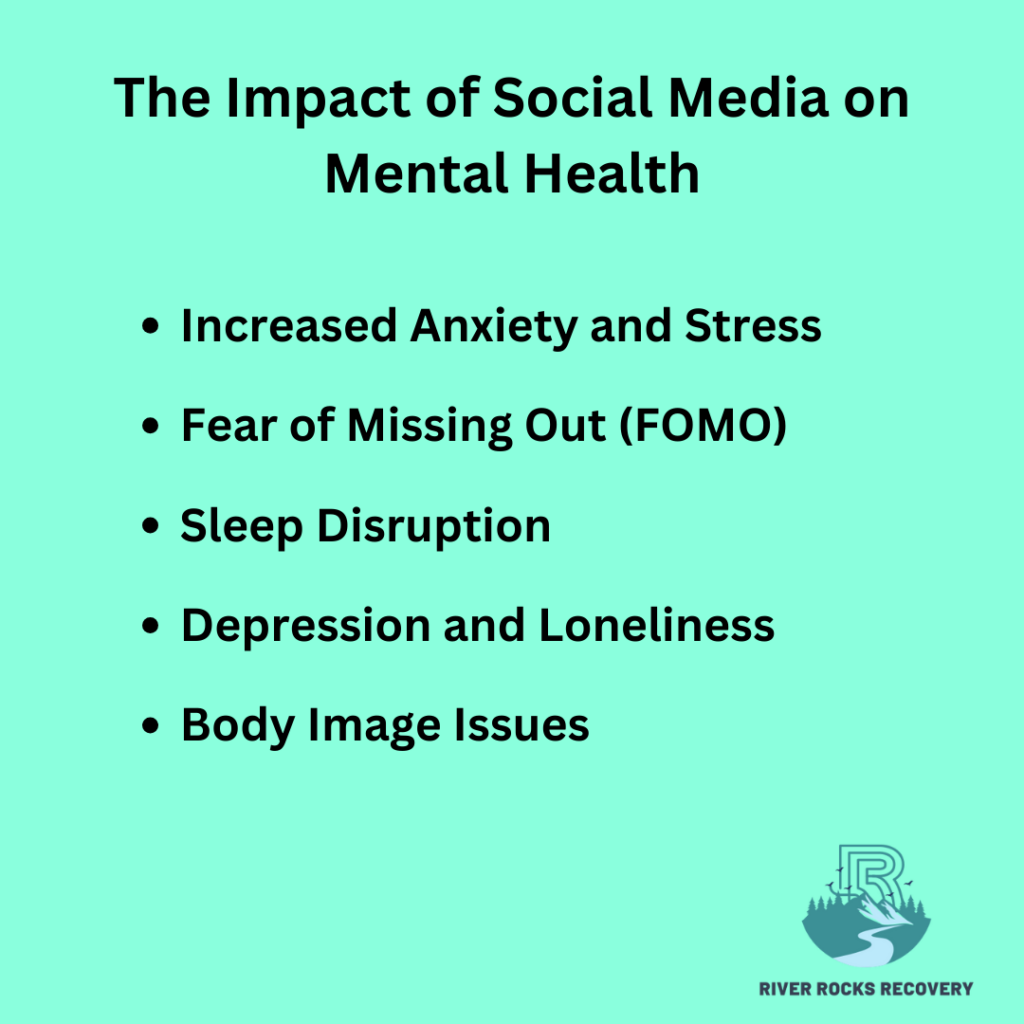Social media has revolutionized the way we connect, communicate, and consume information. While it offers numerous benefits, its impact on mental health has become a growing concern.
The constant comparison to carefully curated online personas can lead to feelings of inadequacy and low self-esteem. Scrolling through seemingly perfect lives can create unrealistic expectations and foster a sense of dissatisfaction with one’s own life. This phenomenon, often referred to as “social comparison,” can contribute to anxiety, depression, and body image issues.
Social Media Impact on Mental Health
While social media often gets a bad rap for its negative impacts on mental health, it’s essential to acknowledge its positive contributions to our lives.
Social media has undoubtedly revolutionized the way we connect with others. It allows us to maintain relationships with friends and family across vast distances, fostering a sense of community and belonging. Additionally, platforms provide opportunities to connect with like-minded individuals, forming support networks and sharing common interests.
Beyond social connection, social media has become a powerful tool for education and awareness. It offers access to a wealth of information, enabling users to learn about various topics, expand their knowledge, and stay informed about current events. Moreover, social media has become a platform for activism and social change, empowering individuals to raise awareness and drive positive impact.
While social media has revolutionized the way we connect, it also comes with potential downsides that can affect mental well-being:

The Negative Impacts of Social Media
While social media offers numerous benefits, it’s essential to acknowledge its potential negative effects on mental health. Excessive use and unhealthy engagement with platforms can contribute to a range of issues.
- Social Comparison and Low Self-Esteem: The carefully curated images and highlight reels presented on social media can create unrealistic expectations and foster feelings of inadequacy. Constant comparison to others can erode self-esteem and body image.
- Cyberbullying and Online Harassment: Social media platforms can be breeding grounds for cyberbullying, exposing individuals to hurtful comments, threats, and online harassment.
- Addiction and Decreased Productivity: The addictive nature of social media can lead to excessive screen time, impacting productivity, sleep, and overall well-being.
- FOMO (Fear of Missing Out): The constant stream of updates and events on social media can create a sense of missing out, leading to anxiety and dissatisfaction with one’s own life.
- Sleep Disturbances: The blue light emitted by screens can interfere with sleep patterns, contributing to insomnia and fatigue.
Tips for Healthy Social Media Use
To harness the benefits of social media while minimizing its negative impacts, incorporating healthy habits is essential.
- Set Boundaries: Establish clear limits on your social media usage, including time spent on platforms and the types of content consumed.
- Mindful Consumption: Be aware of how social media affects your mood and well-being. Challenge negative thoughts and comparisons.
- Prioritize Real-Life Connections: Make time for face-to-face interactions and meaningful relationships.
- Digital Detox: Regularly unplug from social media to recharge and focus on other aspects of life.
- Curate Your Feed: Follow accounts that inspire and uplift you, and unfollow those that contribute to negative emotions.
- Practice Self-Compassion: Be kind to yourself and avoid comparing your life to carefully curated online personas.
- Seek Support: Talk to friends, family, or a mental health professional if social media is negatively impacting your life.
The Importance of Digital Literacy in the Age of Social Media
Digital literacy encompasses the skills and knowledge necessary to navigate the digital world effectively and responsibly. In today’s age of social media, developing strong digital literacy skills is crucial for protecting your mental health and well-being.
- Critical Thinking and Media Evaluation: Digital literacy empowers individuals to critically analyze information, identify misinformation, and evaluate the credibility of online content.
- Online Safety and Privacy: Understanding online privacy settings, protecting personal information, and being aware of cyberbullying and online harassment are essential for staying safe.
- Healthy Digital Habits: Developing healthy relationships with technology involves setting boundaries, managing screen time, and prioritizing real-life interactions.
- Digital Citizenship: Contributing positively to online communities, respecting others, and understanding the ethical implications of online behavior are key aspects of digital literacy.
How to Improve Your Digital Literacy
Digital literacy is an essential skill in today’s interconnected world. By enhancing your digital literacy, you can better navigate the online landscape, protect yourself from cyber threats, and make informed decisions.
Here are some practical tips to improve your digital literacy:
- Continuous Learning: Stay updated on the latest digital trends, technologies, and security threats.
- Critical Thinking: Develop the ability to evaluate information critically and identify fake news or misinformation.
- Online Safety: Protect your personal information, use strong passwords, and be cautious about sharing sensitive data.
- Digital Footprint: Be mindful of your online presence and how it can impact your reputation.
- Digital Etiquette: Practice respectful online communication and avoid cyberbullying.
- Technology Skills: Enhance your proficiency in using various digital tools and platforms.
- Digital Literacy Education: Encourage digital literacy education for yourself and others, especially children and young adults.
The Importance of Digital Literacy for Children and Adolescents
The digital age has transformed the way children and adolescents interact with the world. While technology offers numerous benefits, it’s crucial to equip young people with the necessary skills to navigate the online world safely and responsibly.
- Critical Thinking and Media Literacy: Children and adolescents need to develop the ability to evaluate information critically, identify misinformation, and understand the persuasive tactics used in digital media.
- Online Safety and Privacy: Teaching children about online safety, including password protection, responsible sharing of personal information, and the dangers of cyberbullying, is essential.
- Digital Etiquette: Fostering respectful online behavior, including appropriate language and communication, is crucial for building positive online relationships.
- Balance and Well-being: Encouraging a healthy balance between screen time and offline activities is vital for overall well-being and preventing digital addiction.
- Digital Citizenship: Promoting responsible and ethical use of technology, including respecting intellectual property and copyright laws.
Conclusion
In today’s interconnected world, social media has become an integral part of our lives. While it offers numerous benefits, it’s essential to maintain a healthy balance and prioritize digital well-being. By understanding the potential impacts of social media, developing strong digital literacy skills, and practicing mindful usage, individuals can harness the positive aspects of technology while mitigating its negative effects.
Get Help from River Rocks Recovery
If you or someone you know is struggling with the negative impacts of social media on mental health, River Rocks Recovery can help. Our team of experts offers comprehensive mental health and addiction treatment programs to support individuals in developing healthy coping mechanisms and building resilience. Contact us at: (888) 905-6281 or fill the contact form to learn more about our addiction services.
FAQs on Impact of Social Media on Mental Health
How does social media affect mental health?
Social media can positively impact mental health through social connection, but excessive use can lead to feelings of inadequacy, depression, anxiety, and sleep disturbances.
Is social media addictive?
Some people experience symptoms similar to addiction, such as spending excessive time on platforms and neglecting other areas of life.
Does social media affect body image?
Yes, exposure to unrealistic body standards on social media can contribute to body dissatisfaction and negative body image.
How can I reduce my time on social media?
Set time limits, use apps to track usage, and find alternative activities.
What can I do to improve my mental well-being while using social media?
Practice mindfulness, unfollow accounts that negatively impact you, and focus on positive content.
How can I protect my privacy on social media?
Adjust privacy settings, be cautious about sharing personal information, and be aware of scams and phishing attempts.




























